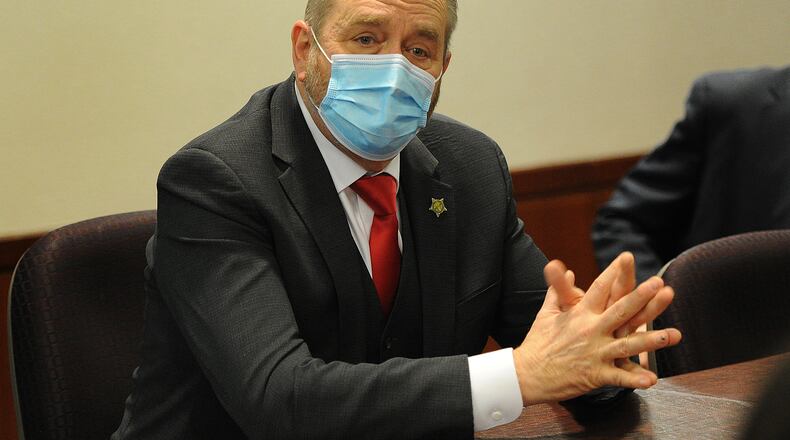Attorney General Dave Yost said a study by the Ohio Attorney General’s Center for the Future of Forensic Science found a spike in opioid-related overdose deaths starting in late April 2020, around the same time that the first federal stimulus checks were issued.
“The link between pandemic relief money and opioid overdose deaths is now evident,” Yost said. “The intent was to help Americans navigate this deadly pandemic, but it also fueled a tidal wave of overdoses.”
Montgomery County saw a 12% increase in overdose deaths in 2020 compared to 2019, with that number rising from 288 to 323 for the full year.
According to Montgomery County Community Overdose Action Team data, there were 81 overdose deaths in the first quarter of 2020, and there were 94 overdose deaths in the second quarter.
According to the CDC’s Provisional Drug Overdose Death statistics, the number of deaths from March 2020 to March 2021 rose more than 30% across the United States compared to March 2019 to March 2020. Officials have said the reasons behind the increases nationwide might have to do with the added stresses created by the COVID-19 pandemic.
Sydney Silverstein, an assistant professor at Wright State University who studies addiction, said she interviewed local people who used drugs during the pandemic and learned that they spent stimulus money on a variety of things.
“A lot of people said ‘I was able to buy a car, I was able to pay my rent for another month, I bought some furniture,’ ” Silverstein said. “And maybe some of them bought drugs. It’s a mixture just in the way that people did a lot of things with the stimulus money.”
She said overdose deaths did rise throughout the country and there are likely many reasons why.
“I don’t really think you can blame this phenomenon on stimulus checks when you have so many other intersecting crises that are going on due to COVID,” Silverstein said. " You have people who are socially isolated, people who lost jobs. A lot of people I talked to were released early from transitional programs or drug treatment programs because they couldn’t have overcrowding due to COVID.”
In addition, millions of people who do not use drugs used the stimulus money to cover expenses, including thousands of people who lost jobs or work shifts due to COVID.
The conclusion in the attorney general office’s study says that further research should take place to investigate the relationship between the payments and overdose deaths, and that the increase may refer to other factors. Yost said on his Twitter account that he believes the stimulus checks helped more people than they hurt, but questioned if they should have been distributed in smaller amounts over time.
Dayton Families of Addicts Executive Director Anita Kitchen said that she knows someone who died of an overdose after getting a stimulus check.
“You get a lump sum of money ... and if you’re newly in recovery, you haven’t settled and established your new lifestyle so what they knew was ‘let me do one last hit and go back and do treatment and I’ll be good.’ And one last was one last,” Kitchen said.
She said the increase is likely also because treatment centers were limited to how many beds they could have and what they could do while social distancing and taking other COVID-19 precautions. She said FOA started doing meetings over the computer, which isn’t ideal when trying to determine if someone needs extra help.
“All of those factors was a perfect storm for those who were suffering addiction or newly recovered,” Kitchen said.
In Clark County, there were 55 overdose deaths recorded in 2020, one fewer than in 2019.
“I would caution that coincidence is not correlation or causation. Regardless, I see this as a call to action,” Clark County Assistant Health Commissioner Chris Cook said. “Substance misuse and addiction are public health challenges that were present before and during the pandemic. As a community, we have an opportunity to recover together and build more resources to help people access services to curb addiction and get on the road to recovery.”
About the Author

